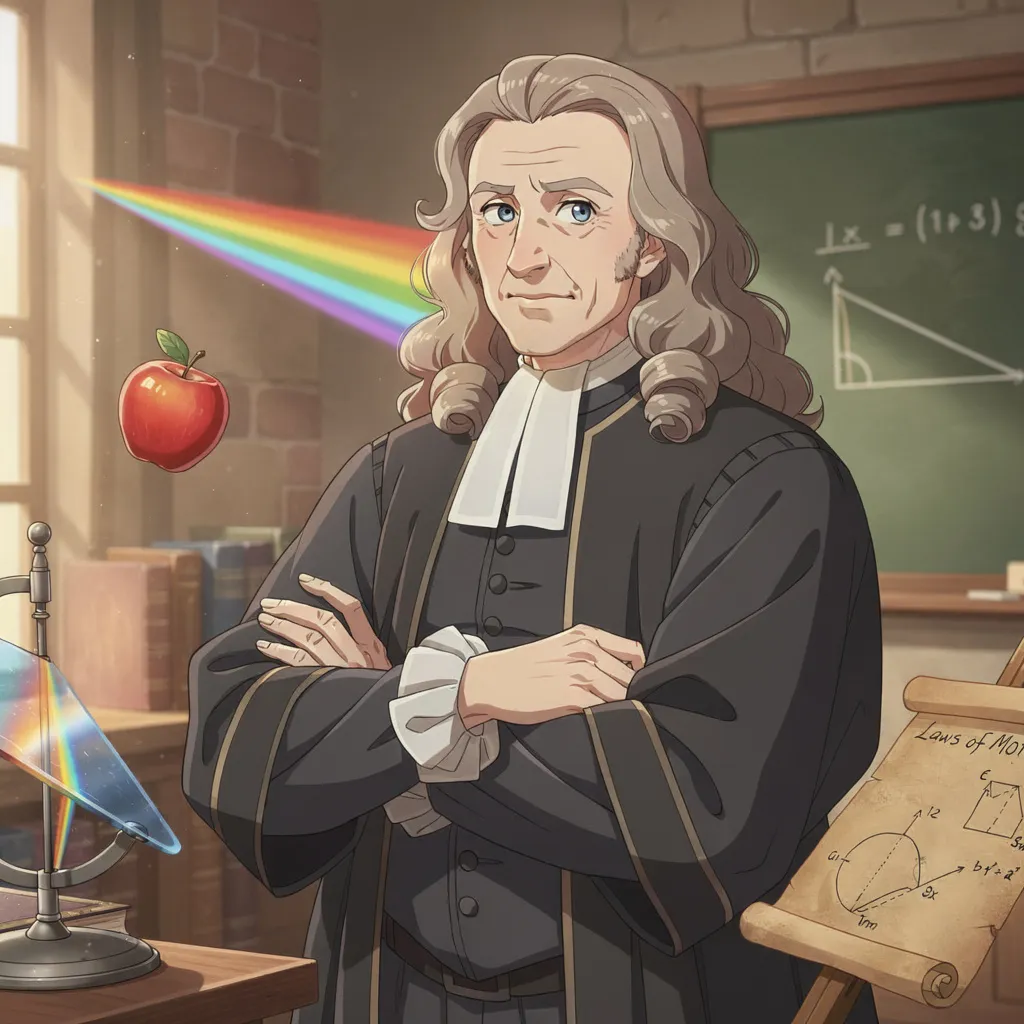
Isaac Newton
1643-1727
Discovering the laws of motion and gravity that help explain how the world moves
Early Life
Isaac Newton was born in a small village in England called Woolsthorpe. He was a quiet child who loved to read, build models, and ask big questions about how things worked.
When Isaac was young, school was not always easy for him. But he was very curious, and that curiosity helped him learn on his own.
Love of Learning
Isaac went to the University of Cambridge, where he studied math and science. At first, he was just one student among many.
Then a sickness spread through England, and the university closed for a time. Isaac returned home, and this quiet time became very important.
Amazing Discoveries
While studying at home, Isaac made some of his greatest discoveries. He thought deeply about motion, light, and space.
One famous story says Isaac saw an apple fall from a tree. This helped him think about gravity, the force that pulls things toward Earth.
Laws That Changed Science
Isaac created three laws of motion. These laws explain how objects move, stop, and change direction.
He also explained gravity with math, showing how planets move around the Sun. These ideas helped people understand the universe in a new way.
Work With Light and Telescopes
Isaac studied light and discovered that white light is made of many colors. He used a prism to show this.
He also built a new kind of telescope using mirrors. This made it easier to see stars and planets clearly.
Later Life and Teaching
Isaac became a professor at Cambridge and later worked at the Royal Mint, where he helped improve money in England.
He was honored by the king and became known as Sir Isaac Newton. This was a very special title.
Legacy
Isaac Newton’s ideas are still taught in schools today. Scientists and engineers use his laws to build bridges, cars, and even rockets.
He showed that careful thinking and hard work can unlock the secrets of nature. His curiosity continues to inspire learners everywhere.
🎉 Fun Facts
Isaac Newton helped invent calculus, a type of math used by scientists and engineers.
He built his first telescope when he was in his mid-twenties.
The apple story may not be fully true, but it helped explain his idea of gravity.
He was once the head of the Royal Society, a famous science group in England.